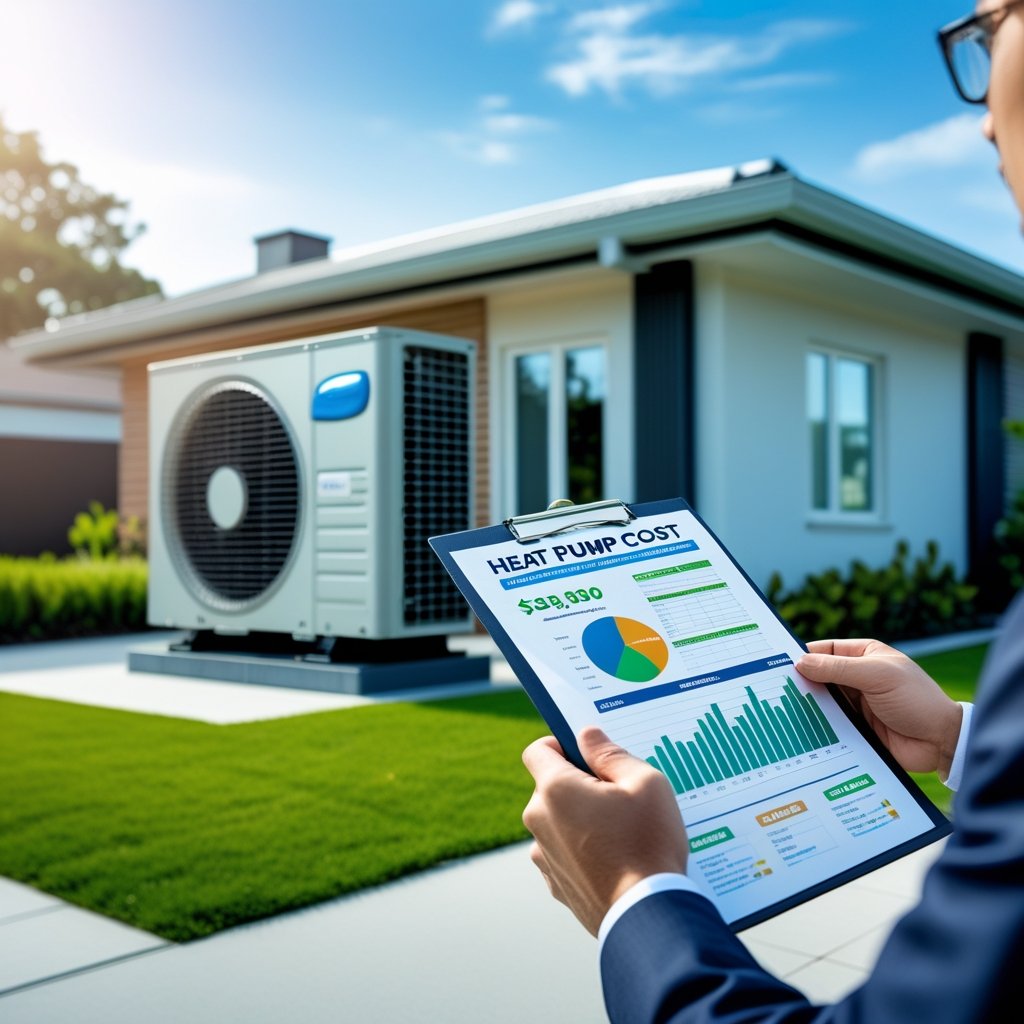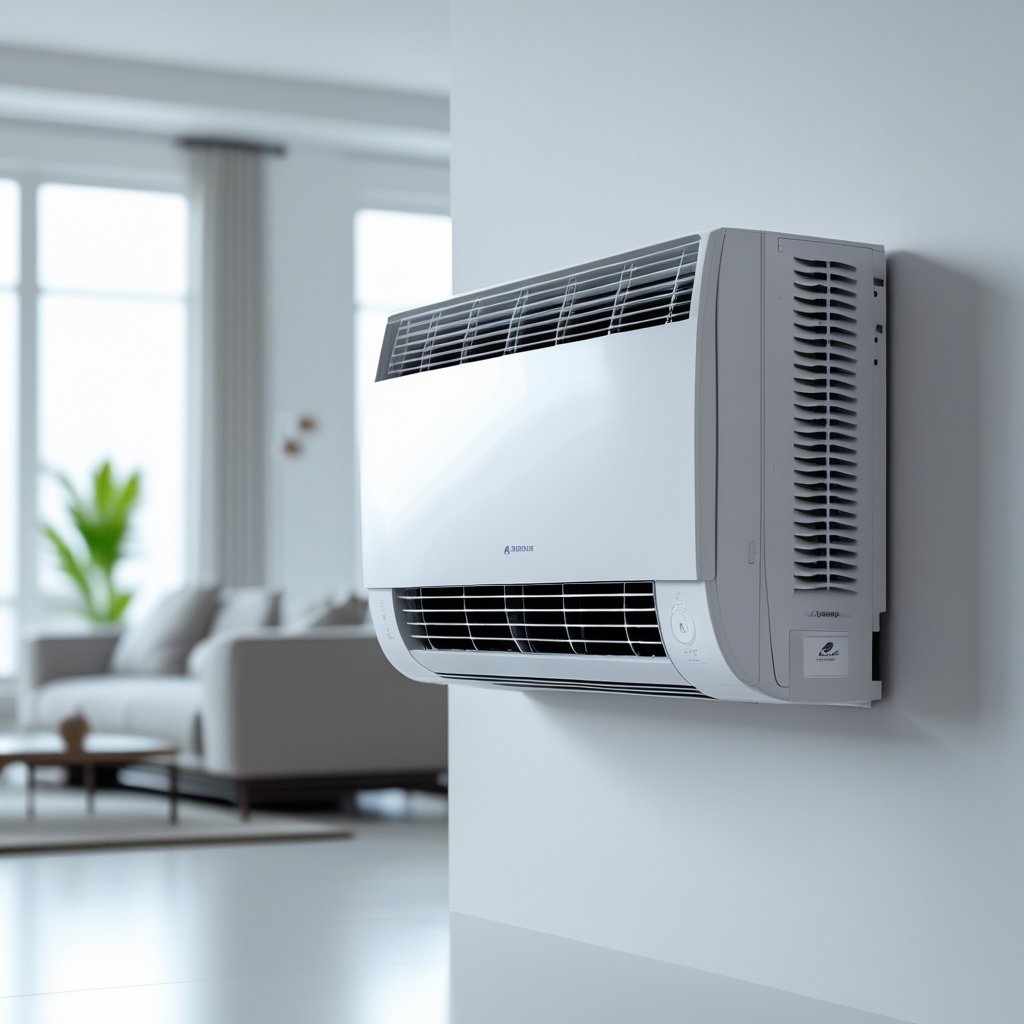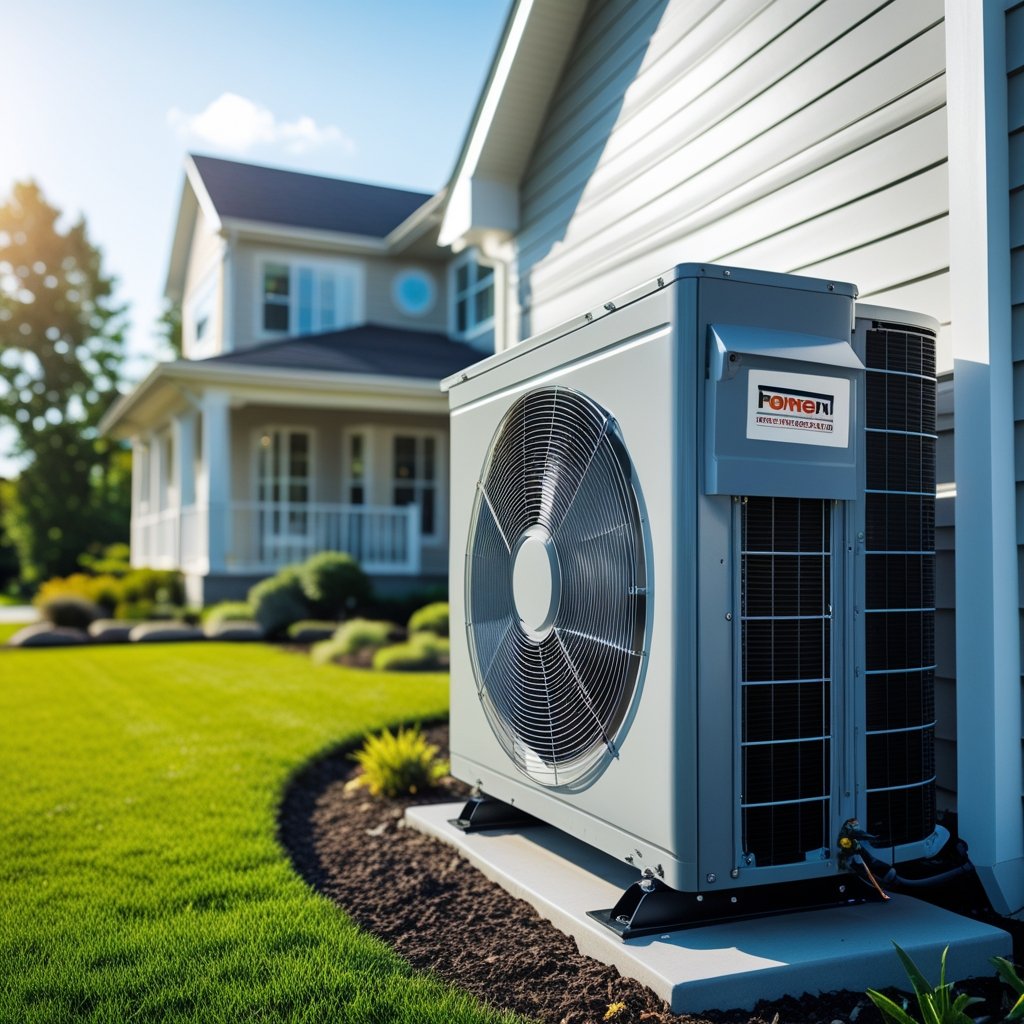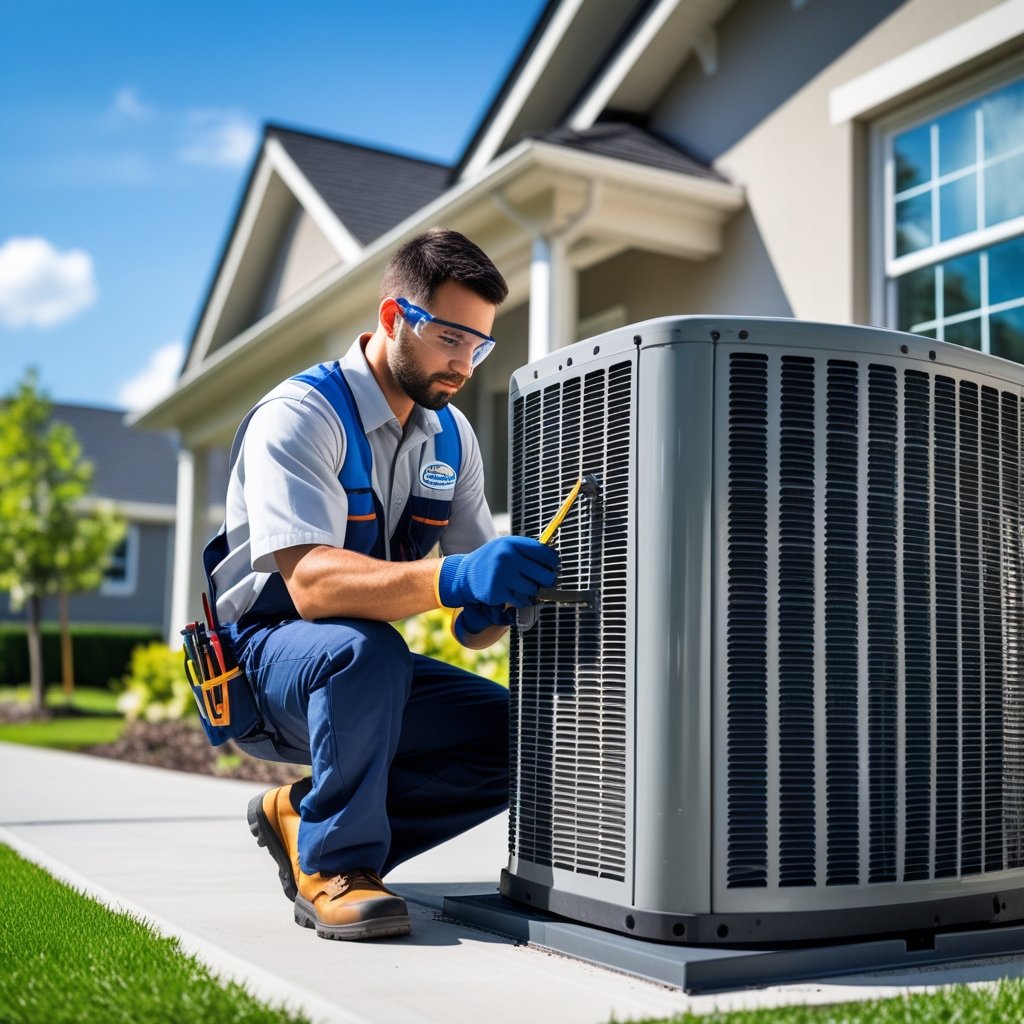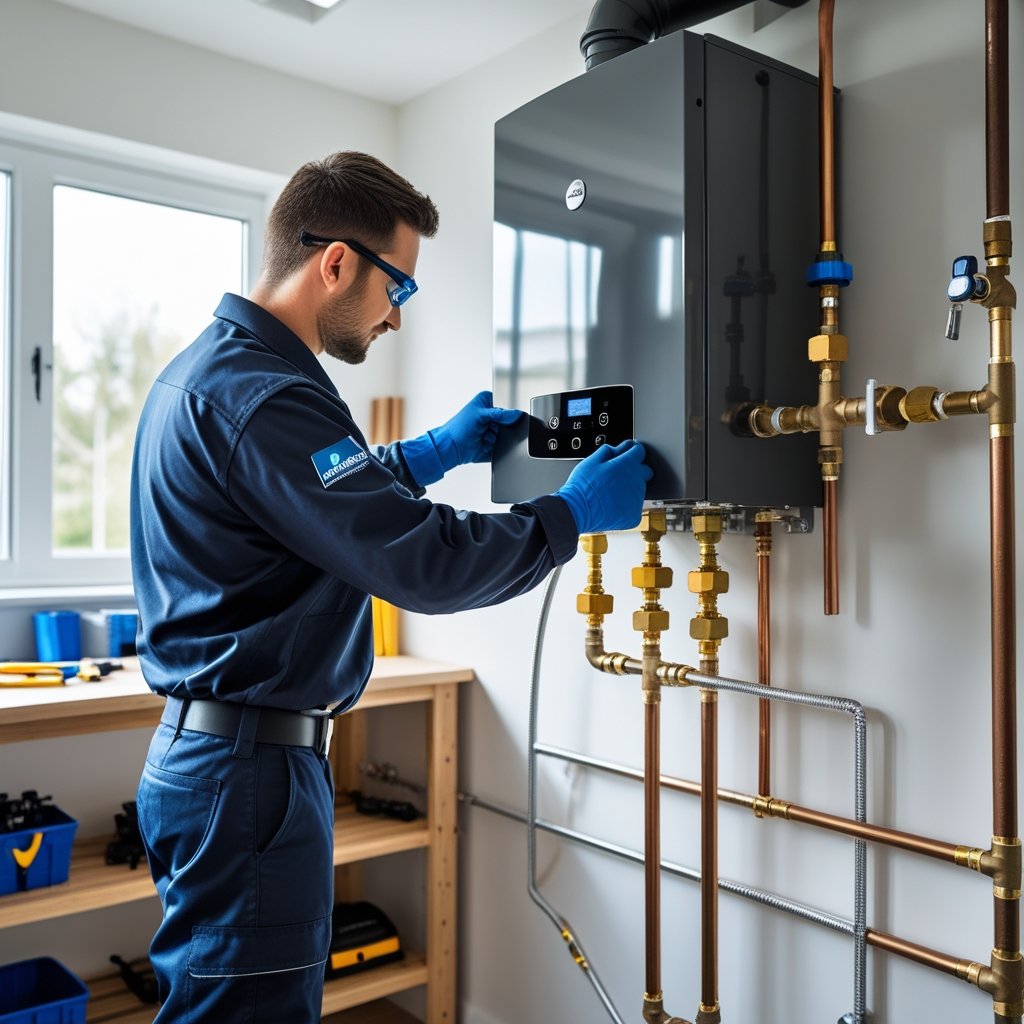Thinking about a heat pump for your home? The first thing most people wonder is: how much will it set me back? Heat pump installation usually starts around $5,000, covering both equipment and labor, but your final price tag depends on your home’s size and which system you go for. It’s helpful to know this up front so you’re not blindsided later.
Heat pumps can really cut down your energy bills, since they use less electricity than old-school heating and cooling. At Leo Kob Co., we’ve worked with a lot of homeowners in Lancaster County and York who want something efficient that doesn’t break the bank. And with rebates and tax credits, upgrading your system might cost less than you’d expect.
It’s important to know what affects the price—installation, maintenance, and all the little extras. Whether you’re in Elizabethtown or Hershey, you deserve honest pricing and advice from people who actually care about your comfort (and your wallet).
What Determines Heat Pump Cost?
Several factors shape the price of a heat pump. The type of system, your home’s size and insulation, and how tricky the installation is all play a part.
System Type
The system you pick has a big impact on the cost. There are air-source, ground-source (geothermal), and ductless mini-split systems.
- Air-source heat pumps tend to be the most budget-friendly. They move heat between your house and the outside air.
- Geothermal systems cost more at first because they need underground loops, but they’ll save you money down the road.
- Mini-split systems are perfect if you don’t have ducts. You get zoning and flexibility, though they can cost more per room.
Your decision comes down to what you can spend and what your home needs. Leo Kob Co. can help you sort through the options and find the right fit for your place in Lancaster County or nearby.
Home Size and Insulation
A bigger house needs a bigger (and pricier) heat pump. You don’t want a system that’s too small or too large—it’s got to be just right for your space.
Insulation matters, too. If your home keeps heat in well, you might get away with a smaller, less expensive system.
Homes in South Central Pennsylvania—Elizabethtown, York, and the like—are all different. Getting a pro to assess your needs is a smart move. The right size means you’re not paying for more than you need, and you’ll stay comfortable year-round.
Installation Complexity
Some installs are easy, some... not so much. Swapping out an old system is usually straightforward, but switching from, say, oil heating can get complicated.
What can make things trickier?
- Needing new or modified ductwork
- Finding the best spots for indoor and outdoor units
- Tight spaces or tough access
Our Leo Kob Co. techs know the quirks of Mount Joy and Hershey homes. They’ll give you an upfront estimate—no surprise fees—so you know what you’re in for before any work starts.
Types of Heat Pumps and Their Costs
Heat pumps come in a few flavors, each with its own price range and pros and cons. The right choice depends on what you want to spend, how much you want to save on energy, and what rebates are out there.
Air Source Heat Pumps
Air source heat pumps (ASHP) pull heat from the air outside and use it to warm or cool your home. They’re the most common and typically the cheapest to install.
You’re looking at $3,000 to $7,000 for most homes, depending on size and brand. Installation is usually fast—no big surprises—which is why people in Elizabethtown and Lancaster County like them, especially since winters aren’t too harsh.
ASHPs do best when it’s above freezing, but newer models can handle colder temps. You might also snag some rebates, which helps take the sting out of the upfront cost.
Ground Source (Geothermal) Heat Pumps
Geothermal heat pumps tap into the earth’s steady temperature with underground pipes. This setup is more involved and costs more at the start.
Expect to pay $10,000 to $30,000. Drilling or trenching for those loops is the big expense. But you’ll save on bills over time, and these systems tend to last longer.
In York or Hershey, geothermal might be a smart long-term move. Rebates and incentives can help, but there’s often a cap—usually $2,000 if you’re bundling with other upgrades like a water heater.
Ductless Mini-Split Heat Pumps
No ducts? No problem. Mini-splits use an outdoor unit and one or more indoor air handlers for different rooms.
Prices run $2,000 to $5,000 per zone. They’re flexible and energy-efficient, making them a solid pick for Mount Joy and nearby towns. You can control the temp in each room, which is great for saving energy.
Mini-splits are usually cheaper to install than ducted systems. Leo Kob Co. handles mini-split installation with straightforward pricing, so you know you’re getting something that fits your home and your needs.
Average Heat Pump Installation Costs
Let’s talk numbers. Prices vary, but having a ballpark helps you figure out what’s realistic.
National Price Ranges
Across the country, installing a heat pump usually lands between $4,000 and $8,000. That covers the unit, labor, and basic setup.
If you go for a ductless mini-split, expect $3,500 to $7,000. Bigger homes or complicated ductwork can push costs up.
Other possible costs: permits, electrical work, old system removal. Heat pumps are efficient, so you’ll likely make some of it back over time.
Regional Cost Differences
In South Central Pennsylvania—Lancaster, Elizabethtown, York—installation costs are usually on the lower to mid end compared to big metro areas.
Local labor and material costs play a part. For example, a Leo Kob Co. install in Lancaster County typically runs $4,500 to $7,000, depending on your home and the system.
Don’t forget about local rebates and incentives—they can shrink your final bill. Leo Kob Co. keeps pricing transparent, so you’re not left guessing.
Additional Expenses and Hidden Fees
Budgeting for a heat pump? Don’t forget the extras. Sometimes, you’ll run into costs for permits, inspections, or home upgrades to handle the new system.
Permitting and Inspection Fees
You’ll probably need permits from local authorities before installing a heat pump in Lancaster or nearby. These make sure your setup meets safety codes.
Permit fees usually fall between $50 and $200. After the work’s done, you’ll need an inspection to check everything’s up to code. Sometimes the inspection fee is bundled with the permit, but not always.
Skip the permits or inspections, and you could face fines or headaches if you ever sell your house. Leo Kob Co. always recommends budgeting for these fees to avoid surprises.
Electrical and Ductwork Upgrades
Older homes in Elizabethtown or York might need electrical upgrades for a new heat pump. That could mean a new panel or a dedicated circuit.
Ductwork might need fixing up, too. Bad or outdated ducts can drag down your system’s performance. If you need repairs or resizing, expect that to add to the cost.
Depending on your home, these upgrades can cost a few hundred to over a thousand bucks. Leo Kob Co. gives you the full quote up front—no “gotchas.”
Here’s what you might see:
- Permit fees: $50–$200
- Inspection fees: sometimes included
- Electrical upgrades: $300+
- Ductwork changes: varies, often $500+
Ongoing Costs: Operation and Maintenance
Owning a heat pump isn’t just about the upfront spend. You’ll have ongoing costs for running and maintaining it. Think energy bills and regular tune-ups.
Annual Energy Consumption
How much juice your heat pump uses depends on how often you run it and what the weather’s like. In South Central PA, a well-maintained heat pump can be super efficient since it moves heat rather than making it.
Your electric bill will go up during the coldest or hottest months. Using a programmable thermostat or making sure your house is sealed up tight can help keep costs down. Leo Kob Co. can help you pick the right size system so you’re not paying for wasted energy.
Regular Service and Repairs
Don’t skip the check-ups. Plan for at least one service visit a year—especially in towns like Elizabethtown or Lancaster County. Techs will clean filters, check refrigerant, and look over all the parts.
Staying on top of maintenance helps your heat pump last longer and keeps repair bills low. Problems can pop up, but regular service usually catches them early. Leo Kob Co. offers fair prices and honest advice. Book your annual tune-up to keep things humming along.
How To Save on Heat Pump Installation
A heat pump is a solid investment, but let’s be real—costs add up fast. You can save by hunting for deals or picking the right time to buy. Both can make a bigger difference than you might think.
Manufacturer And Installer Promotions
Keep an eye out for manufacturer promos when you’re shopping. Brands sometimes offer rebates or drop prices during certain times of the year. You might get cash back or a discount on high-efficiency models.
Installers like Leo Kob Co. sometimes run their own specials—maybe free maintenance for a year, or a break on installation fees. Always ask about current promotions or rebates before you commit.
Make sure you get the details in writing. Deals can vary by area—Elizabethtown, Lancaster County, York, you name it. If you’re paying attention, you can land quality work for less.
Timing Your Purchase
When you buy matters. Prices often dip in the slower seasons, like late fall or early spring. That’s a good time to schedule your install—less demand, better deals.
If you time your purchase with local rebate deadlines or energy-saving programs in South Central PA, you might save even more. Utility companies sometimes roll out extra rebates for certain months or models.
Getting your installation done in the off-season can also mean faster service and more attention from your tech. Leo Kob Co. works in Hershey, Mount Joy, and beyond—sometimes timing your purchase is the secret to a better deal and a smoother experience.
Financial Incentives and Rebates
Paying for a heat pump can sting, but it doesn’t have to be all on you. Tax credits and local rebates can knock down your final price. These programs reward energy-smart upgrades and help folks in South Central PA keep more of their cash.
Federal Tax Credits
The feds offer tax credits for certain heat pumps. That means a dollar-for-dollar cut to your taxes. The usual credit covers up to 30% of what you paid for the unit and installation.
Hang on to your receipts and file IRS Form 5695 at tax time. The system has to meet energy standards, so double-check with your installer. If you’re near Elizabethtown or York, this could make a big difference in what you pay.
Local and Utility Rebates
A lot of utility companies and local governments in Lancaster County, Mount Joy, and Hershey offer rebates for energy-efficient upgrades. Sometimes it’s a set amount, sometimes a percentage.
You might get a rebate for upgrading your HVAC or for installing a heat pump through a certified contractor like Leo Kob Co. Always check with your utility company before you buy—some programs need pre-approval and proof of purchase. Take the time to do it, and you could save a few hundred bucks.
Comparing Heat Pump Costs to Other HVAC Systems
When you’re weighing heat pump costs, it’s not just about the sticker price—it’s about the savings down the road, too. Some systems just fit certain homes and climates better, and there are rebates and tax credits out there through companies like Leo Kob Co. That can help take the sting out of installation and tip the balance toward energy efficiency as the years go by.
Heat Pumps vs. Furnaces
Heat pumps usually cost more upfront than traditional furnaces. In South Central Pennsylvania, a furnace might have a lower starting price but runs on gas or oil, so you’ll probably notice higher fuel bills when winter hits. Heat pumps run on electricity and just move heat around instead of burning fuel, which can mean lower operating costs.
In places like Lancaster or York, where winters aren’t too brutal, you’ll likely save more on energy bills with a heat pump. Plus, they cool your home in the summer, so you don’t need a separate AC. Of course, in really cold weather, a furnace might still edge out a standard heat pump—unless you spring for a cold-climate model.
For folks in Elizabethtown and Mount Joy, maintenance tends to be a bit easier on the wallet with heat pumps. Leo Kob Co. even offers service plans to keep things humming along.
Heat Pumps vs. Air Conditioners
A heat pump costs more to install than a regular air conditioner because it handles heating, too. You’re paying extra for equipment and installation at the start.
But you get one system for both heating and cooling. That saves space and means less upkeep compared to juggling two separate units. Over time, the efficiency of a heat pump can chip away at your utility bills, especially if you’d otherwise be running an electric heater with your AC.
In Hershey or Lancaster County, local rebates and deals from companies like Leo Kob Co. can help offset those upfront expenses. If you keep up with maintenance, your heat pump can even outlast a traditional AC.
Long-Term Value and Return on Investment
If you pick a heat pump, you’re betting on comfort and lower energy use for the long haul. These systems use electricity efficiently, which means you could see your energy bills go down compared to old-school heating and cooling setups.
Here’s what you might get out of your heat pump:
- Energy savings: You could cut heating and cooling costs by 30-50%.
- Rebates and incentives: South Central Pennsylvania has programs that can knock down your upfront costs.
- Long lifespan: With regular maintenance, you could see 15 years or more from your heat pump.
Leo Kob Co. cares about honest pricing and solid service in Elizabethtown, Lancaster County, Mount Joy, York, and Hershey. They’ll help you see how heat pump costs now can pay off with fewer repairs and lower bills later.
Regular maintenance matters. Honestly, it’s worth having Leo Kob Co. come out once a year for a tune-up. That way, you’re less likely to get hit with a big repair bill, and your heat pump should last longer.
Investing in a heat pump isn’t just about pinching pennies—it’s about making your home more comfortable and valuable. Sure, you pay more upfront, but the ongoing savings and fewer headaches make it a smart move over time.
Tips for Choosing the Right Heat Pump
Start by thinking about your home’s size and layout. If the unit’s too small, it’ll struggle. Too big, and you’re wasting energy. Be realistic about what you need.
Check out energy efficiency ratings like SEER or HSPF. Higher numbers usually mean you’ll save more on utilities. Don’t forget to see if your model qualifies for local rebates or incentives in South Central Pennsylvania—those can really help with costs.
Think about the type of heat pump. Air-source heat pumps work for most homes. Or, if you want to skip ductwork or control temps in specific rooms, a mini-split system could be a great fit.
Work with a local company you trust—Leo Kob Co. has experts in Elizabethtown, Lancaster, and York who can size things up and recommend what’s best. They’ll handle the install, too, so you don’t have to worry about safety or efficiency.
Remember, maintenance isn’t optional. Regular service keeps your heat pump running well and helps you dodge big repair bills. Ask about maintenance plans—getting priority scheduling and discounts doesn’t hurt. It’s just a good way to protect your investment.
Here’s a quick checklist to keep handy:
FactorWhat to Consider Home SizeMatch capacity to your houseEnergy EfficiencyLook for high SEER or HSPF ratingsHeat Pump TypeAir-source or mini-splitLocal RebatesCheck for Pennsylvania energy rebatesInstallation QualityChoose experienced local professionals
If you choose wisely, you’ll enjoy steady, efficient heating and cooling for years.
Frequently Asked Questions
Heat pump costs depend on your home’s size, system type, and installation complexity. You’ll want to budget for monthly running costs, upfront installation, and maybe upgrades like replacing the heat pump and air handler together.
What's the average cost to run a heat pump each month?
Most people spend somewhere between $50 and $150 a month to run a heat pump. Your bill depends on insulation, climate, and how much you use it.
Can you give me an idea of the installation costs for a new heat pump?
A new heat pump install usually starts around $3,000 to $7,000. The actual price depends on system size and whether you need ductwork changes.
What's the ballpark figure for replacing both a heat pump and air handler?
If you’re swapping out both, expect a range of $8,000 to $12,000. System quality and installation details make a difference.
How does the size of my home affect the overall price of a heat pump?
Bigger homes need bigger heat pumps, which cost more upfront and to install. Smaller homes can usually get by with a less expensive system.
How much should I budget for a 4-ton heat pump system?
For a 4-ton heat pump, plan on spending between $5,000 and $10,000. That size is pretty typical for medium to large homes in places like Lancaster County or York.
Are there any incentives or tax credits available for heat pump installation?
If you’re in South Central Pennsylvania, you might find some energy rebates or tax credits that help with heat pump installation. It’s definitely worth poking around local programs or just asking your Leo Kob Co. technician what’s out there right now—they usually know what’s up.

